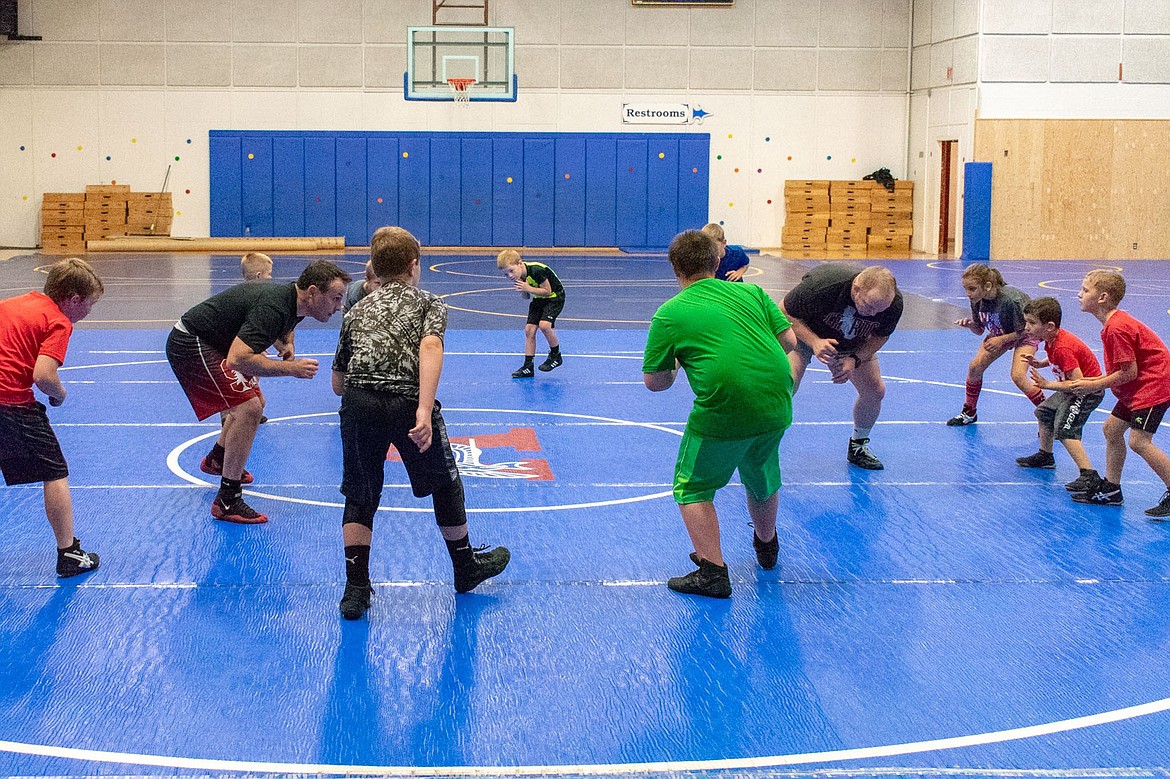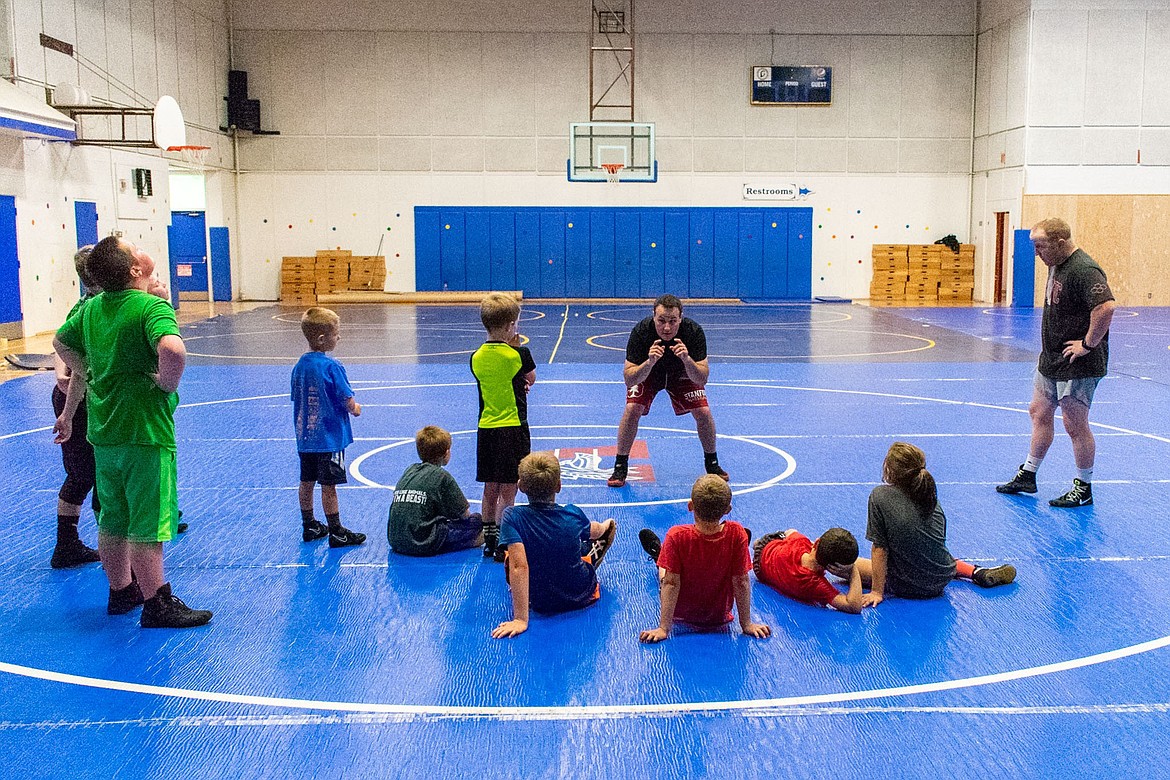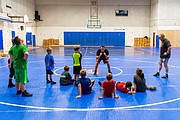Wrestling camp brings top-notch training
For its second year, the Greenchain Wrestling Camp has already seen a lot of growth, drawing in young wrestlers from all over western Montana and even Idaho.
Just among the older group, participation at least doubled since last year, said Libby High School Head Coach Kelly Morford, who with assistant Coach John Love put together the camp for the first time last year.
“It’s just providing an opportunity for local wrestlers, in their hometown, to get some top notch instruction from Division One coaches,” he said.
Any proceeds in excess of costs will go toward the Greenchain Wrestling Club, but the main point is to give the young wrestlers the opportunity to train and learn, he said.
This year’s camp featured some top instruction from Stanford wrestling Head Coach Jason Borrelli and Eastern Michigan Head Coach Dave Bolyard. This was the second year for Borrelli, who said he was originally approached by Love for last year’s camp, and thoroughly enjoyed the experience.
Originally from rural Michigan, Borrelli said there was something homelike in not only getting to spend a weekend working with young wrestlers, but also spending time with the kind of people who exemplify a “give the shirt off your back” mentality.
Though there may be fewer athletes to draw into the sport in Montana, the state still produces some top-notch talent, and he said he sees as much passion locally for the sport as there is anywhere.
“It’s appealing to me to be able to give to an area of the country that really needs it, and whose kids deserve it,” he said.
With few college wrestling opportunities in Montana, Borrelli sees value in exposing the young athletes to what other opportunities are out there for them if they continue in the sport. And, that goes both ways, with the potential to meet wrestlers he wouldn’t otherwise who could be recruited for college wrestling.
Bolyard said Borrelli is an old friend who recruited him to help after his experience last year.
A wrestler since fourth grade, Bolyard has seen opportunities for young people in the sport grow, and attributes some of the improved performance by U.S. wrestlers on the world stage to the growing interest in clubs and camps.
“I think a lot of that’s because of these camps and clubs that these kids are getting great experience earlier, and they’re developing earlier, and it’s been good for our country for sure,” he said.
From being a lifelong wrestler, Bolyard said he sees the important role wrestling can have in life.
“One of the great things about our sport is, at the end of the day, you have to hold yourself accountable,” he said.
From personal discipline to learning the character of taking responsibility for their own success, wrestlers come away with a lot of strengths that help them to do well no matter what other paths they take in life, he said.
“That’s how you succeed in wrestling, and that’s how you succeed afterwards.” he said.
Early in the camp, Borrelli gave a reminder of the perseverance at the heart of wrestling.
Walking the wrestlers through a series of exercises that some performed better than others, when the words “I can’t” came up, he had a word to add to the phrase.
“If you can’t do it now, just remember, it means you can’t do it yet,” he said.



